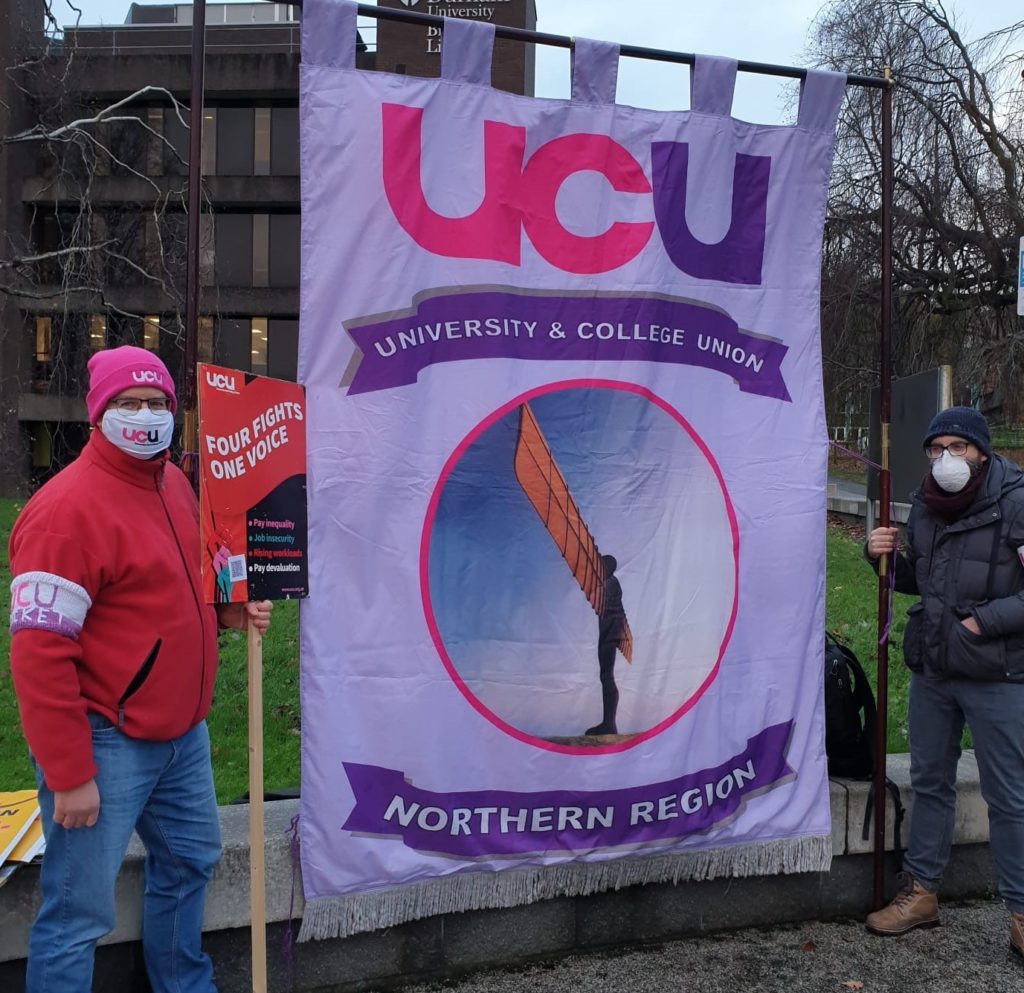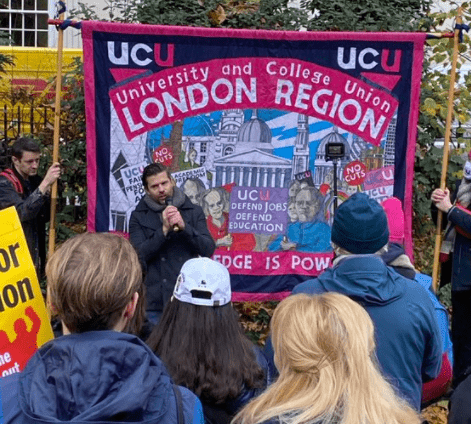By a UCU member
We are now entering the fourth year of industrial action on pensions at the pre-92 Universities. As a result of changes brought forward by Universities UK (UUK), members will see an average cut in their retirement benefits of 35%.
On the face of it, things are not good. In February, the Universities Superannuation Scheme (USS) and UUK formally voted in favour of this package of cuts and they will come into force next month.
The union caught the employers by surprise when a majority of pre-92 universities managed to reach the threshold for strike action in 2018. They hadn’t believed that there would be the reaction there was to the proposed reductions in pensions. However, the element of surprise only lasted for a period of time and to keep repeating the same line of attack and expecting a different result is madness. But this, unfortunately, has been the tactic of UCU leadership.
There have been distinct and clear failings by the UCU leadership. For example, in the most recent round of strike action, multiple institutions have been informed of their strike days by the national office, but for many institutions the dates have fallen in the week after teaching ends. In effect, what UCU leaders are asking members to do, is to withdraw their labour when students aren’t even on site. This action is causing minimal disruption to teaching and is only demoralising members who have already suffered significant financial losses through their longstanding and courageous action.
Action has radicalised the workforce
Members are willing to fight, and even willing to lose money, but they want to strike in a way that will create a shift in the position. This strike action has radicalised a section of the workforce that has not engaged in a struggle like this before and we run the risk of losing all these gains if we don’t act in a more tactically adroit manner.

The first most important point is that the UCU nationally should communicate more effectively with regions and branches. The union should grant a level of autonomy to branches to ensure that the most effective strike days and times are used for their specific branches. Unions should be member-led and democratic structures and to have ineffectual strike days imposed is both demoralising and counter-productive. It would be the equivalent of the RMT calling strike action on a day the trains weren’t running.
This level of incompetence isn’t just reserved for the latest round of strikes. In last June’s sector conference, it was decided that there would be a ballot over Summer, but it didn’t happen and the democratic will of members was ignored. A delayed ballot took place in October and subsequent strike actions took place in December, through to March. The UCU missed an opportunity to strike at the start of the academic year. This is naïve at best but at worst incompetence.
The Tories’ draconian trade union laws require 50% of members to vote, and while some branches met the threshold, some just missed it. The difference in between strike action and non-strike action in some institutions amounts to single figures. If the courage of UCU members was matched with the competent of UCU leadership, we could have made significant progress.
Four years of practice to use scab labour
Members are being re-balloted as I write. The next key steps are to impose a strict marking and assessment boycott. Universities can reschedule lectures, get scab labour in and they have had four years of practice to do this. However, they will find it much more difficult to deal with the inevitable headache of delays in marking and assessment that a boycott would produce. The knock-on effect of this disruption would be a delay in students receiving marks, graduating and progressing through the years in their studies.
At one institution this week, as students were graduating, someone even said to me “this is one of the best days of their lives and you’re ruining it with your protest!”. To be clear, UCU aren’t ruining anything; workers who ensure that young people are able to graduate at all are fighting tooth and nail for their terms and conditions, and as far as we are concerned, the action is imposed by UUK. Needless to say, this person was made aware of the position.

It goes without saying that no-one wants to give students a poor learning experience. But it should also go without saying that no-one wants university employees and UCU members to have their terms and conditions undermined.
A key point to raise is that total annual income across the sector is around £41.9bn and reserves held by institutions are £46.8bn. This is never highlighted strongly enough. The sector is awash with cash and it can afford to not only provide the pensions that employees were promised, but even to make significant pay increases in light of the fact that since 2009 staff have seen an average pay cut of over 20% real terms. This cut is likely to steepen sharply over the next few years.
A marking and assessment boycott
With the special Higher Education sector conferences approaching, on April 20 and 27, there needs to be a strategy devised that not only includes an assessment boycott but promises significant and unrelenting disruption going into the next academic year. The union needs to show militancy matched with competency.
Despite the failings of the UCU leadership, this dispute can still be won. The most significant period of this dispute is upon us, as members are being re-balloted, we need to make sure that the UCU gets the vote out and continues actions. With a marking and assessment boycott, a subsequent withdrawal of labour at the beginning of the next academic year, and a clear strategy decided at next month’s HEC, we can win; we must win.
The strike has created a significant rise in the membership of the UCU, and it has created a high level of militancy within the membership. With the undoubted industrial unrest which is set to hit the UK over the next few years, in all industries and all union, the UCU can be at the forefront of the industrial challenges that lie ahead.
Whilst currently there is little faith in the parliamentary Labour Party, there is every reason to believe that workers can still be properly represented by their trade unions. It is through this, and currently only this, that workers can take on and defeat the ruling class.



